
Each TRIOS book addresses an important theme in critical theory, philosophy, or cultural studies through three extended essays written in close collaboration by leading scholars.
Also published in the series:
Occupy: Three Inquiries in Disobedience by W. J. T. Mitchell, Bernard Harcourt, and Michael Taussig
The Neighbor
Three Inquiries in Political Theology
With a New Preface
SLAVOJ IEK
ERIC L. SANTNER
KENNETH REINHARD
The University of Chicago Press
Chicago and London
The University of Chicago Press, Chicago 60637
The University of Chicago Press, Ltd., London
2005, 2013 by The University of Chicago
All rights reserved. Published 2013.
Printed in the United States of America
22 21 20 19 18 17 16 15 14 13 1 2 3 4 5
ISBN-13: 978-0-226-04520-7 (paper)
ISBN-13: 978-0-226-06851-0 (e-book)
DOI: 10.7208/chicago/9780226068510.001.0001
Originally published in Religion and Postmodernism, a series edited by Thomas A. Carlson.
iek, Slavoj.
The neighbor : three inquiries in political theology / Slavoj iek, Eric L. Santner, Kenneth Reinhard ; with a new preface.
pages. cm.(TRIOS)
ISBN 978-0-226-04520-7 (pbk. : alk. paper)ISBN 978-0-226-06851-0 (e-book)
1. Political theology. 2. Church and social problems. I. Reinhard, Kenneth, 1957 II. Santner, Eric L., 1955 III. Title. IV. Series: TRIOS (Chicago, Ill.)
BT83.59.Z59 2013
177'.7dc23
2012050440
 This paper meets the requirements of ANSI/NISO Z39.48-1992 (Permanence of Paper).
This paper meets the requirements of ANSI/NISO Z39.48-1992 (Permanence of Paper).
Contents
KENNETH REINHARD
ERIC L. SANTNER
SLAVOJ IEK
Preface, 2013
Perhaps no other political event in recent years has been as historically eventful as what has come to be called the Arab Spring. The surge of collective action in country after country in North Africa and the Middle East, which in several cases led to the toppling of authoritarian governments, took the world by surprise in much the same way as the fall of the Berlin Wall and the collapse of really existing socialism in Europe in 1989. In hindsight these actions come to make sense, seem even to be belatedhow can it have taken so long for this to have happened?and yet one knows, at some level, that the condition of their possibility was established by the events themselves. It really happened, so now we know that it was possible.
During the heady days of protest in Tahrir Square in Cairo one heard numerous reports of the participants sense that they were not only experiencing a world-historical momenta sort of cut in timebut also that the nature or truth of the event was inextricably linked to the kind of community that began to emerge over the course of the demonstrations. What was being demonstrated was not only that the people were fed up with their government; equally important was the experimental demonstration of a mode of acting in concert and being together, which to a large extent was not determined by preexisting social or religious affiliations, and which had not seemed imaginable before. Various markers of identity and ways of being (and the often rigid boundaries that go with them) seemed, for a time, as if suspended.
One is tempted here to cite the famous words of Galatians 3:2829, where Paul invokes the Abrahamic experiment that was renewed, as he believed, in and through the emergence of a new ekklesia in the space opened by the Christ event: There is neither Jew nor Greek, there is neither slave nor free, there is neither male nor female; for you are all one in Christ Jesus. And if you are Christs, then you are Abrahams offspring, heirs according to his promise. Paul here calls for a generic universalism indifferent to conventional social divisions and faithful to an earlier declaration, the commandment to love your neighbor as yourself, which, in his Letter to the Romans, Paul presents as the motto of revolutionary fidelity to the Sinai event: he who loves his neighbor has fulfilled the law (13:8). For Paul, this renewal is in fact something new, insofar as Christs return to the Abrahamic convenant involves the repunctuation of the temporal fabric of reality itself: Besides this you know what hour it is, how it is full time now for you to wake from sleep (13:11). One recalls as well Corinthians 1:2931: I mean, brethren, the appointed time has grown very short; from now on, let those who have wives live as though they had none, and those who mourn as though they were not mourning, and those who rejoice as though they were not rejoicing, and those who buy as though they had no goods, and those who deal with the world as though they had no dealings with it. For the form of this world is passing away.
Pauls insistence on the radical expansion of the covenant at Sinai to all the peoples of the world is also a transformation of the very idea of the neighbor: if conventional accounts of the commandment to neighbor-love tend to assume a notion of proximity (the nearness implied by the English word neighbor, whether understood in geographical, ethnic, or religious terms), the Hebrew word in the commandment, rea, does not involve spatial nearness or social similarity, but merely gathering together. Pauls letters suggest that the concept of the neighbor does not necessarily imply only a spatial relationship but also what we can think of as a topological one, in which new types of neighborhoods gather and disperse according to new modes of proximity: the narrowing of the now implies an expansion and de-territorialization of the here. Moreover, isnt our contemporary experience of neighboring in the age of the Internet increasingly independent of geographical or spatial proximity? How can the neighborhood understood in topological terms transform our sociopolitical experience of neighbors and our religio-ethical accounts of the neighbor?
We might say, then, that what emerged at places like Tahrir Square was an experimental neighborhood, a coming together of people, each of whom, under the sign of a particular, concrete demandin the case of Egypt, the demand that Mubarak be deposedcould practice or experiment at being a neighbor. The following essays, all written several years before the Arab Spring, are attempts to conceptualize the peculiar nature of such experiments, to unpack the ethical, political, aesthetic, and theological dimensions that come into play there. What makes such experiments so difficult, so precarious, so fleeting, is that they seem to require that their participants enter into the neighborhood of something in their neighbor that is quite simply hard to bear, indeed something that can very quickly call forth horror and repulsion. It is the argument of these essays that what endows our neighbor with this element of too muchness is at least in part generated by the way he or she has gotten psychically (dis)organized around the impasses of the situation that generated the call to action, that invoked the demonstrations in the first place. Communities so formed are thus always threatened by the eruption of autoimmune responses. We hope that the essays in this volume contribute to a better understanding of this dynamic and perhaps even offer a way to imagine modes of loving ones neighbor more resistant to such immune disorders.
Kenneth Reinhard, Eric L. Santner, Slavoj iek
Autumn 2012
Introduction
I
In a well-known series of reflections in Civilization and Its Discontents, Freud made abundantly clear what he thought about the biblical injunction, first articulated in Leviticus 19:18 and then elaborated in the Christian teaching, to love ones neighbor as oneself. Let us adopt a naive attitude towards it, Freud proposes, as though we were hearing it for the first time; we shall be unable then to suppress a feeling of surprise and bewilderment. Freud condenses this surprise and bewilderment in a series of questions and objections that cannot but seem reasonable and commonsensical:
Next page

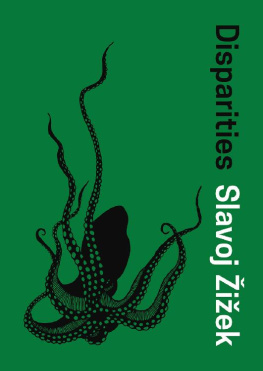
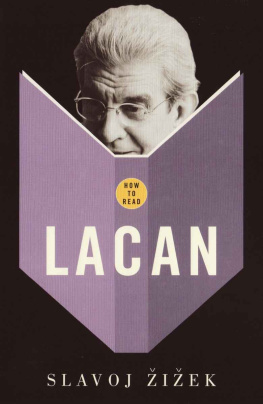
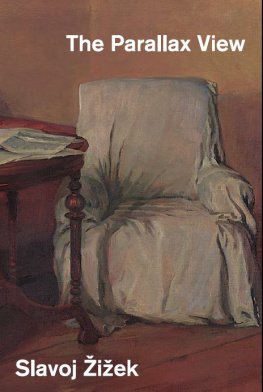
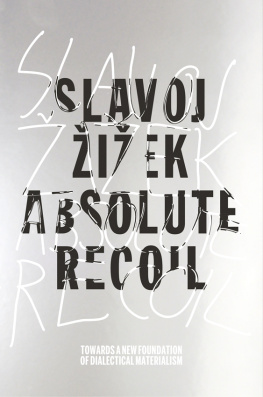
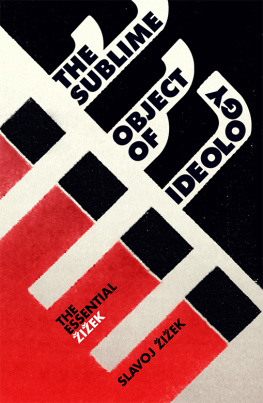



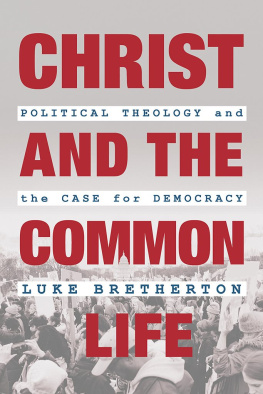
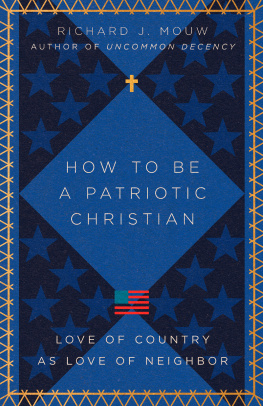


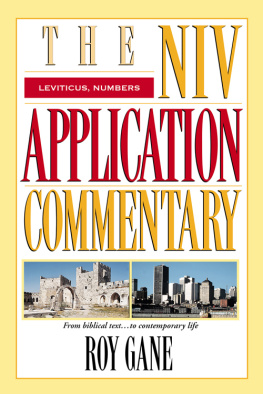
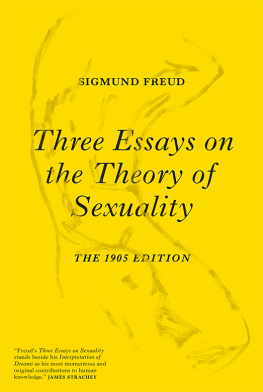

 This paper meets the requirements of ANSI/NISO Z39.48-1992 (Permanence of Paper).
This paper meets the requirements of ANSI/NISO Z39.48-1992 (Permanence of Paper).